With MLB free agency in full swing, we’re taking a look back at the battle between players and ownership for the right to control player movement. In Part 1: Organize or Die, the story of Curt Flood.
There’s only one thing you need to know about the City of St. Louis: Cardinals baseball.
After winning pennants in 1967 and 1968, the Cardinals finished 1969 fourth in the National League (NL) East, 87-75, with Red Schoendienst at the helm. A disappointing season but that didn’t matter, we had Curt Flood—the best defensive outfielder who blew Willie Mays out of the water.
Flood had been a Cardinal since 1958, hit over .300 six times and was the quintessential baseball player.
It was a cool early October day. I had just left the city courthouse—a slap of the wrist fine for organizing a wildcat strike and blocking delivery trucks from leaving the warehouse hub and was making my way back to the office down Olive Street. My only stop along the way was Miss Hulling’s Cafeteria for a cup of black coffee and to pick up my daily copy of the St. Louis Post-Dispatch.
I had barely taken my first sip of the piping hot black stuff when my eyes caught the scandalous headline splashed across the front page: Curt Flood Traded to the Phillies. I threw down my two dollars on the counter, gave a half-assed wave to Ms. Florence Hulling, and sprinted the last half mile of my commute.
Without thinking twice about it I barged into Allen Zerman’s office in a moment of disbelief.
“Did you see this headline?” I asked shoving the front page at him.
Zerman nodded and just held up his finger. He hung up the phone after a few tense moments, looked over at me and said, “that was Mr. Flood, he’s coming in to talk about the trade and what he can do to stop it.”
Right on time, around 11 o’clock if I remember correctly, Curt Flood’s 5-foot 7-inch frame walked through the doors and into the conference room.
“What can we do to stop this?” he asked, “there’s no way I’m going to Philadelphia.”
“We’re going to have to attack this from using anti-trust laws,” said Zerman.
At the time, the players collective bargaining agreement (CBA) was still missing a grievance and arbitration provision, and any issues that couldn’t be resolved between the players, union, and the league, would land at the feet of the commissioner—judge, jury and executioner.
“The only way we’re going to end the reserve rule is by proving once and for all that it’s a violation of the Sherman Anti-Trust laws,” Zerman said, “ we need to show that your contract expired and, therefore you’ve got the right to pursue your own ball club, and have the freedom to determine your own future.”
Baseball’s reserve clause, one of the most unjust actions in the game’s history, made it impossible for players to enter contracts with other teams, and gave owners the power to train, release, sell, or reassign any player at their whim.
Paragraph 10(a) of the uniform player contract, read “the club shall have the right… to renew this contract for a period of one year.” I’m still amazed how such a dryly written contract clause held so much power.
I watched as Flood and Zerman went back and forth…questions followed by answers and lawyer speak. The conference room table was littered with crumpled paper, empty coffee cups, and dog-eared case law tomes.
Flood left the office determined to fight and win.
“Let’s get this started,” he said, “I’ll give Miller a call and see if the players union is on board.”
It was time for Flood to take his stand.
November 1969: New York, New York
The flight from St. Louis to New York took about three and a half hours. I ended up having to pay my own way up to the big apple, but it was worth it. There was no way I was going to miss this fight.
After Flood had put in his call to Miller, I put in mine and was brought on as an organizer.
I was the last one to arrive at the Summit Hotel on Lexington Avenue in downtown Manhattan. Flood, Zerman were there with Marvin Miller, Major League Baseball Players Association (MLBPA) executive director, and Dick Moss the MLBPA’s general counsel.
“What do you mean there’s some indication the court might go differently in our case?” asked Flood and Zerman in unison.
Thinly moustachioed Marvin Miller took a deep breath and started going over the Toolson case.
“Well…back in ’53 Toolson went after the reserve clause using the same anti-trust laws. And even though the Supreme Court had ruled recently then that horse racing, boxing and football were subject to antitrust laws, baseball wasn’t.”
“The court reviewed the case and ruled it wasn’t, keeping baseball exempt from antitrust laws, despite the fuzzy legal reasoning behind it,” continued Miller. “They followed court precedent (stare decisis) and kicked it over to Congress to fix.”
“In Federal Baseball Club of Baltimore v. National League of Professional Baseball Clubs, 259 U.S. 200 *357 (1922), this Court held that the business of providing public baseball games for profit between clubs of professional baseball players was not within the scope of the federal antitrust laws. Congress has had the ruling under consideration but has not seen fit to bring such business under these laws by legislation having prospective effect. The business has thus been left for thirty years to develop, on the understanding that it was not subject to existing antitrust legislation. The present cases ask us to overrule the prior decision and, with retrospective effect, hold the legislation applicable. We think that if there are evils in this field which now warrant application to it of the antitrust laws it should be by legislation. Without re-examination of the underlying issues, the judgments below are affirmed on the authority of Federal Baseball Club of Baltimore v. National League of Professional Baseball Clubs, supra, so far as that decision determines that Congress had no intention of including the business of baseball within the scope of the federal antitrust laws.”
In the moments of silence following Miller’s explanation, I could see their minds racing and I’m certain Miller did too, which led to the following exchange:
“Look. I don’t doubt you’re a good lawyer Allen, but if we’re going to win this thing, we’re going to need someone with experience before the Supreme Court. I want to you be a part of this team, but it would be good if we brought someone on that has a bit more of a national profile and could bring us the good publicity to win in the court of public opinion.”
The one-hour lunch meeting became a four-hour one and it ended with Miller going over the history of every player who ever challenged baseball’s monopoly. I won’t go into detail about it here, mostly because I ended up not writing it down—my wrist couldn’t take it.
Flood and Zerman went home to St. Louis while me, Dick and Marvin hit the road. There were a lot of ball clubs and player reps that needed to hear about this. I kept my fingers crossed, praying player solidarity would hold strong.
December 1969: MLBPA Executive Board meeting, Puerto Rico
The first week of December found me sitting in meeting room corner surrounded by my baseball heroes. It was the regularly scheduled e-board meeting but the only agenda item this time was Curt’s case.
Miller went over the case point by point, leaving the decision to support Flood’s fight up to the players’ reps. If they voted yes it would become a union fight.
Flood came in after Miller wrapped up and was ready to make his case.
“Have you thought about the fact that by taking this fight you might never play ball again?”
“By doing this you might change the game for future players and do a lot to benefit them, are you ready for that?
What if the owners offer you a ton of money to drop the case?” asked Jim Bunning.
The room went silent instantly.
Flood looked around the room, making eye contact with each player rep, and said in a soft yet firm tone: “If the players association commits to helping me in this lawsuit, I will make the commitment that I will not withdraw the suit.”
Before anyone else could respond, Tom Haller asked the question on everyone’s mind, “Are you doing this because you’re black and you feel baseball has been discriminatory?”
“All the things you say are true and I’d be lying if I told you as a black man in baseball, I hadn’t gone through worse times than my white teammates,” replied Flood. “I’ll also say that yes, I think the change in black conciseness in recent years has made me more sensitive to injustice in every area of my life. But I want you to know that what I’m doing here I’m doing as a ballplayer, a major league ballplayer, and I think it’s absolutely terrible that we have stood by and watched this situation go on for so many years and never pulled together to do anything about it. It’s improper, it shouldn’t be allowed to go on any further, and the circumstances are such that, well, I guess, this is the time to do something about it.”
Flood left the room and in the moments that followed the players voted unanimously to support his lawsuit and his fight.
The day after we got back, Miller asked me to phone Arthur Goldberg and put him through to his direct line. Goldberg was Miller’s choice of attorney for the case and their history went back to 1950 when Goldberg was general counsel for the United Steelworkers Union (USW) and Miller was their chief economist.
On December 24, 1969, Flood and Goldberg sent a letter to baseball commissioner Bowie Kuhn that read:
Dear Mr. Kuhn,
After 12 years in the major leagues, I do not feel that I am a piece of property to be bought and sold irrespective of my wishes. I believe that any system that produces that result violates my basic rights as a citizen and is inconsistent with the laws of the United States and the several states.
It is my desire to play baseball in 1970 and I am capable of playing. I have received a contract from the Philadelphia club, but I believe I have the right to consider offers from other clubs before making any decision. I, therefore, request that you make known to all the major league clubs my feelings in this matter and advise them of my availability for the 1970 season.
Curt Flood
Kuhns reply was what we all expected.
He gave an understanding of Flood’s position that “as a human being, [you] are not a piece of property to be bought and sold…however, I cannot see it’s applicability to the situation at hand.”
“If you have any specific objection to the proprietary of the assignment, I would appreciate your specifying the objection,” closed the letter.
Miller looked over at Goldberg, threw up his hands and exclaimed “if you just close your eyes and poke your finger at Flood’s letter; you will scarcely final sentence that “doesn’t” specify his ‘objection’”
The case Flood v Kuhn was filed January 1970. We were expecting a slow legal process as the case inched through the legal system. What we got was a fast-burning wildfire that took us through two years instantly.
May 1970: The Trial Beings
Judge Irving Coopers’ courthouse is where the case began, and after the preliminary hearing and trial, Cooper ruled against Flood in August citing the past precedent established under Federal Baseball and the 1953 Toolson decision. From this point on Zerman took an advisory role in the case as we planned to move it forward through the courts.
August 1970:
We filed an appeal arguing Coopers hadn’t addressed the question presented in Flood’s argument—the reserve rule itself—and ruled baseball was exempt from all federal and state antitrust laws. After a year the appellate court upheld Cooper’s decision. Goldberg was called up to take it before the Supreme Court. During this time, I was on the road keeping players up to date on the case and going over the newly minted grievance-arbitration procedure that was won during the CBA negotiations in 1970.
June 1972:
The Supreme Court’s decision delivered the killing blow. With a vote of five to three, one abstention, upheld the lower court’s ruling.
Justice Harry A. Blackmun wrote the majority opinion:
In view of all this, it seems appropriate now to say that:
- Professional baseball is a business, and it is engaged in interstate commerce.
- With its reserve system enjoying exemption from the federal antitrust laws, baseball is, in a very distinct sense, an exception and an anomaly. Federal Baseball and Toolson have become an aberration confined to baseball.
- Even though others might regard this as “unrealistic, inconsistent, or illogical,” see Radovich,352 U.S. at 352 U. S. 452, the aberration is an established one, and one that has been recognized not only in Federal Baseball and Toolson, but in Shubert, International Boxing, and Radovich, as well, a total of five consecutive cases in this Court. It is an aberration that has been with us now for half a century, one heretofore deemed fully entitled to the benefit of stare decisis, and one that has survived the Court’s expanding concept of interstate commerce. It rests on a recognition and an acceptance of baseball’s unique characteristics and needs.
We repeat for this case what was said in Toolson:
“Without reexamination of the underlying issues, the [judgment] below [is] affirmed on the authority of Federal Baseball Club of Baltimore v. National League of Professional Baseball Clubs, supra, so far as that decision determines that Congress had no intention of including the business of baseball within the scope of the federal antitrust laws.”
346 U.S. at 346 U. S. 357. And what the Court said in Federal Baseball in 1922, and what it said in Toolson in 1953, we say again here in 1972: the remedy, if any is indicated, is for congressional, and not judicial, action.
The judgment of the Court of Appeals is
Affirmed.
It certainly a loss for us…but we were proud of what we this accomplished outside the legal realm: Solidarity.
Curt Flood’s case brought light to issue long forgotten in the dark and raised players awareness nationwide when it came to issues of social justice.
Changes were coming whether we knew it or not.
As I sat in the union office thinking of what to make of all this, I thought back to an interview between Flood and Howard Cosell:
Cosell: You’re a man who makes $90,000 a year, which isn’t exactly slave wages. What’s your retort to that?
Flood: Well, Howard, a well-paid slave is, nonetheless, a slave.
I wasn’t expecting the next free agency battle to show up only a year and a half later…
To be continued.






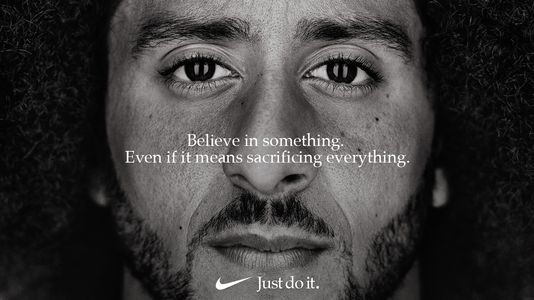



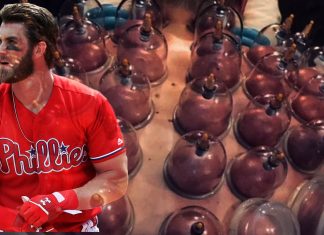
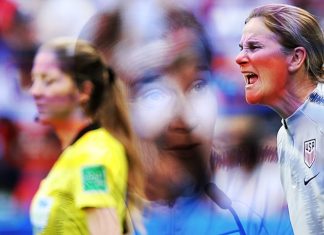

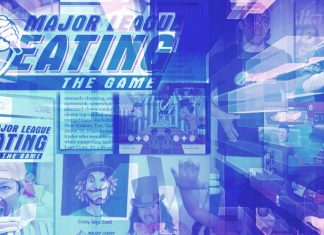
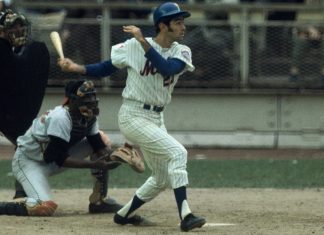
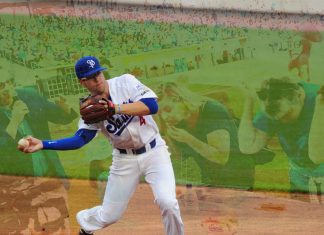
Free Agency has become a cancer that has overtaken the sports world.Whatever the initial intentions greed has surpassed it all..No limitations on the dole being paid out and at present 400 millions ten year contracts and growing will see major sports in the ditch as th is entire concept makes no sense whatsoever…Again…..Greed personified….
How is this greed personified? If those portions of the profits were not paid to the players that owners deem worthy, they would merely go into the owners pockets. The players are merely seeking out a fair wage for the services they provide, and the owners willingly pay it. No team is going bankrupt paying players.